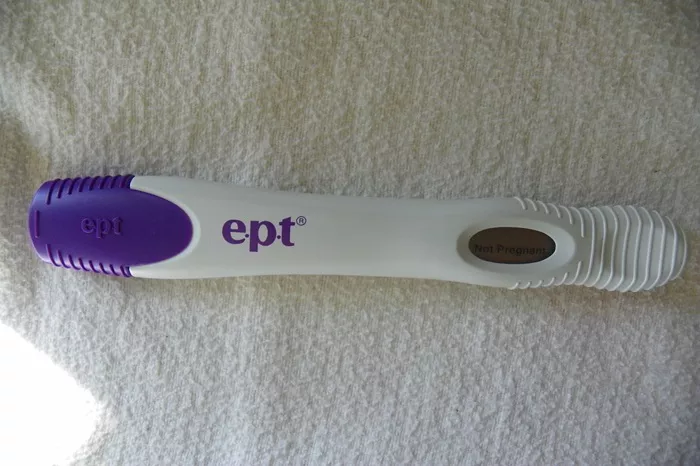Detecting pregnancy early is essential for expectant mothers. Early Pregnancy Test (EPT) kits are one of the most popular methods used to determine pregnancy at home. This article provides comprehensive information on how soon EPT can detect pregnancy, the science behind it, and factors affecting its accuracy.
Understanding EPT and How It Works
EPT kits are home pregnancy tests designed to detect the presence of human chorionic gonadotropin (hCG), a hormone produced during pregnancy. The placenta starts producing hCG soon after the fertilized egg attaches to the uterine lining. EPT tests are engineered to identify even small amounts of this hormone in a woman’s urine.
How EPT Tests Function:
Collection of Urine Sample: The test requires a urine sample, usually collected first thing in the morning when hCG levels are highest.
Application to the Test Strip: The urine is applied to the test strip, which contains antibodies that react with hCG.
Reading the Results: After a few minutes, the test displays the results. A positive result indicates the presence of hCG, suggesting pregnancy.
SEE ALSO: How to Dip a Pregnancy Test in Urine?
When Can EPT Detect Pregnancy?
EPT tests are designed to detect pregnancy as early as the first day of a missed period. However, some sensitive EPT tests can detect hCG levels even before a missed period. Generally, it is possible to get accurate results around 10 to 14 days after conception.
Key Timeframes:
7-10 Days Post-Conception: Some EPT tests claim to detect pregnancy this early, but accuracy might be lower.
10-14 Days Post-Conception: This period generally offers more reliable results, coinciding with the expected date of the next menstrual period.
After a Missed Period: The most accurate results are typically obtained after a missed period when hCG levels are higher.
Factors Affecting EPT Accuracy
Several factors can influence the accuracy of EPT results, including the timing of the test, the concentration of the urine sample, and individual variations in hCG levels.
Factors to Consider:
Timing of the Test: Testing too early can lead to false-negative results due to insufficient hCG levels.
Concentration of Urine: Using first-morning urine is recommended for higher hCG concentration.
Sensitivity of the Test: Different EPT tests have varying sensitivity levels. More sensitive tests can detect lower hCG levels earlier.
Proper Usage: Following the instructions carefully is crucial for accurate results.
Medications and Medical Conditions: Certain medications and medical conditions can affect hCG levels and test accuracy.
Comparing EPT to Other Pregnancy Tests
EPT is just one of many home pregnancy tests available. Comparing it to other tests can provide insight into its effectiveness and reliability.
Comparison with Other Tests:
Home Pregnancy Tests: EPT is similar to other over-the-counter tests in terms of function and accuracy. Some tests may have higher sensitivity or digital readouts.
Blood Tests: Blood tests administered by healthcare professionals can detect pregnancy earlier and measure precise hCG levels, but they are not as convenient as home tests.
Clinical Urine Tests: These tests are performed in a clinical setting and can be more accurate due to professional administration and analysis.
Conclusion
EPT tests are a valuable tool for early pregnancy detection, offering convenience and reliability. By understanding how EPT works, the best times to test, and factors affecting accuracy, women can use these tests effectively. Early detection allows for prompt prenatal care, benefiting both the mother and the developing baby. If there are any uncertainties, consulting a healthcare provider ensures accurate confirmation and guidance through the early stages of pregnancy.
FAQs
How long does it take for hCG to show up in urine?
Human Chorionic Gonadotropin (hCG) is a hormone produced by the placenta shortly after a fertilized egg attaches to the uterine lining. For most women, hCG can be detected in the urine about 10 to 14 days after conception. This is because it takes some time for the hCG levels to build up to a detectable level. However, this can vary depending on the sensitivity of the pregnancy test used and the individual’s body.
How long does it take for pregnancy to show on a tester?
Pregnancy tests work by detecting the presence of hCG in urine. For a standard over-the-counter urine pregnancy test, most women will get an accurate result if they test one week after their missed period. This is typically about 14 days after ovulation or conception. Some highly sensitive pregnancy tests claim to detect pregnancy as early as 6 days before the missed period, but the accuracy improves significantly the closer you are to the expected period date.
What is the earliest a pregnancy test can be positive?
The earliest a pregnancy test can show a positive result is typically around 10 days after conception. This is when hCG levels in the urine may have risen enough to be detected by a highly sensitive home pregnancy test. However, the most reliable time to take a test is after the first day of the missed period, which is usually about 14 days after conception for most women. Testing too early can result in a false negative if hCG levels are not yet high enough to be detected.


